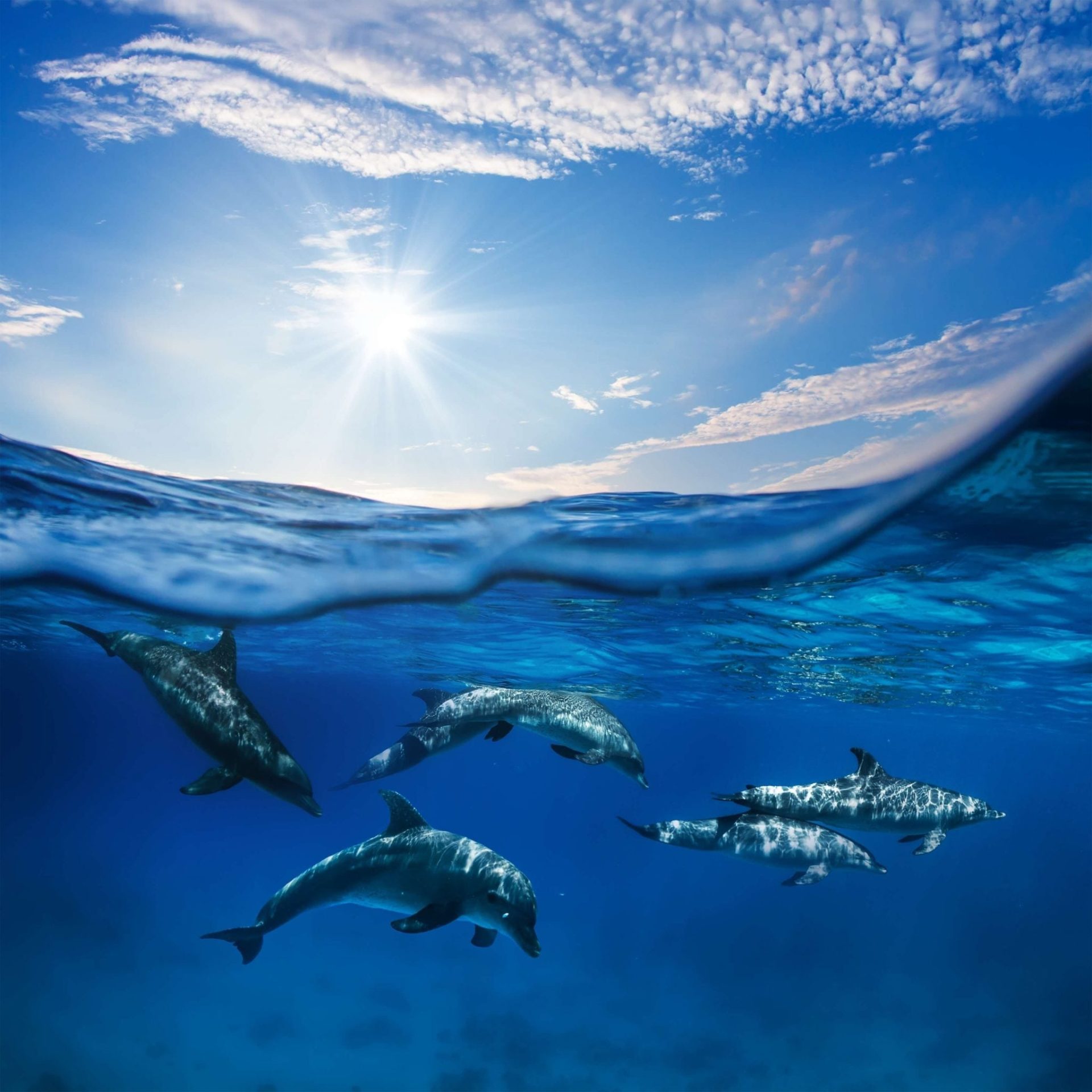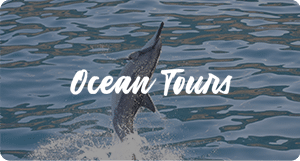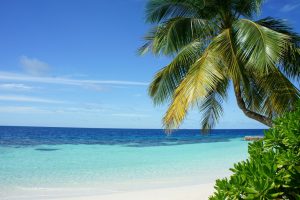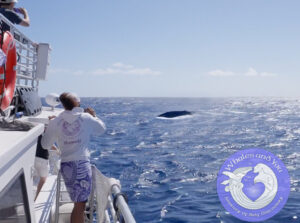
Dolphins are wonderful creatures – and they are fragile, just like humans. With recent news of the NOAA having concerns over the health and safety of these wild animals, we at Dolphins and You wanted to highlight what we believe are “Guidelines for Appropriate Interaction with Hawaiian Spinner Dolphins” in our list of 10 procedures our company abides by:
1. “HEA” Hawaii Ecotourism Association Certification
Our Mission Statement is: “To protect ‘Hawaii’s unique natural environment and host culture through the promotion of responsible travel and educational programs relating to sustainable tourism for residents, businesses and visitors.”


A. Advise guests to use coral/reef safe sunscreen and to apply sunscreen 15-20 min. before entering the water.
B. Carry a recycle container on the vessel to promote recycling and pick up trash and plastic from the ocean.
C. Harmful chemicals, including clorox bleach, are banned from our vessel.
D. Practice and promote Hawaiian culture and traditions through our Hula dance, Ukulele and ‘Oli and teachings.
2. Multi-language Video
Customer safety and dolphin education video we show our guests on the bus ride from Waikiki to Waianae boat Harbor.
Languages Include: English, Japanese, Korean, Chinese.
3. Dolphin Education
Before entering the water, we educate our guests on proper etiquette when swimming with wild dolphins.
4. Passive Approach with Dolphins
Let the dolphins swim to us! Do not chase after them!
5. Respect The Dolphins in Their Natural Habitat
In the water, gather guests in a tight group and wait for the dolphins to approach us. Discourage chasing, diving and splashing when near the dolphins.
6. Curious Creatures
When we maintain a passive non-aggressive approach, in many instances the spinner dolphins will come back numerous times, circling us in the water.
7. Dolphin Behavior
Be conscious of dolphins’ behavior when they are resting or moving. Be respectful and do not try to alter their movements, even if they choose to avoid us.
8. Highly Sensitive Creatures
They are highly sensitive to loud noise or aggressive movement. Always keep in mind that we are entering their home. To keep a healthy relationship with the dolphins, keep quite and avoid chasing. Result in a passive, non-threatening interaction between dolphins and humans.
9. Marine Protectors and Ambassadors
We encounter many uneducated shore swimmers in the shallow bays. We do what we can to protect dolphins and turtles against their aggressive behavior.
10. Captains’ Etiquette
All of the dolphin boat captains from the Leeward Coast of Oahu communicate through VHF radio. In a professional manner, we enter the area one boat at a time to avoid overcrowding the dolphin pods.











